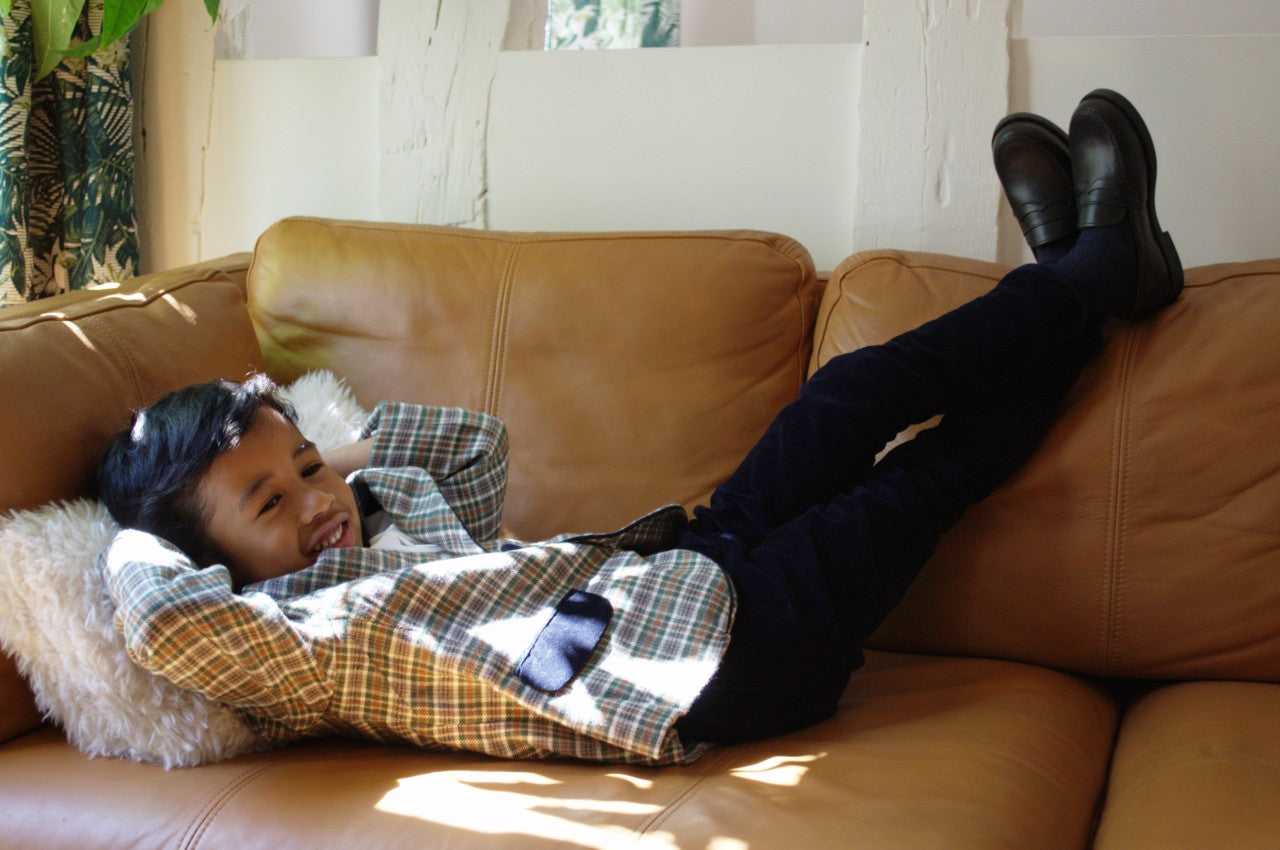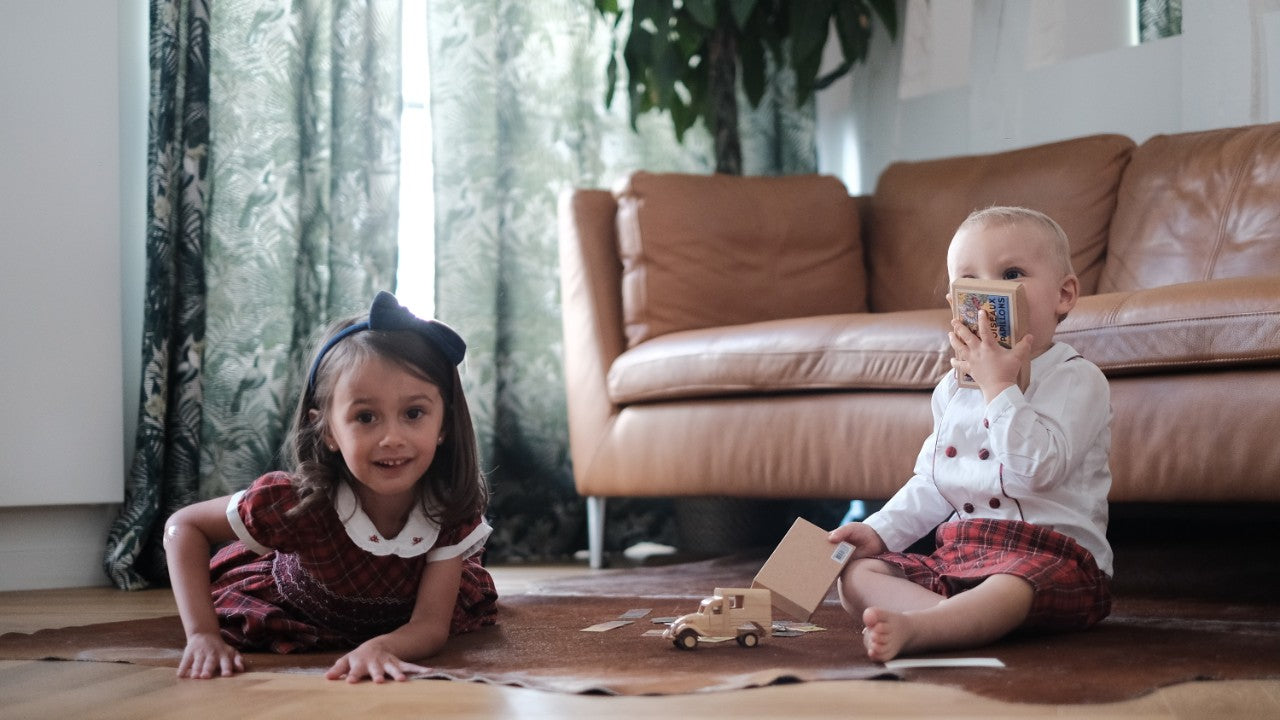
Survival guide with kids (quarantine edition)
Hello !
I hope you are well ? We didn't think here at Kidiwi that the first newsletter we were going to send you would look like this! A difficult context of quarantine here in France,certainly, but which we can choose to live as a moment of (re) discovery of our family, our children, of ourselves. We can choose to suffer from this situation, or we can (try) to take advantage of it.
Easier said than done, it's true! Most of us are working remotely, so we have deadlines and at the same time we become improvised teachers for our children…
For 4 years, I worked from home, with my children by my side. I just wanted to share with you some tips, ideas, which worked well for me and which allowed me to live a life of entrepreneurial mom with a little more serenity.
I then came up with a small practical "survival guide" for you, that you can of course adapt, no pressure!
- Bring the kids together for a special "survival game plan" meeting (they love this title)

Having a special, dedicated time gives more value and weight, rather than a discussion between two doors. Around a table, in a circle on the bed, or on the sofa, we arm ourselves with sheets of paper and pencils and we are about to draw up the plan. The goal: to take up the challenge all together to cross these few weeks together without (too much) breakage, and as a bonus, to come out more united!
- Let everyone express themselves.
Let everyone share their ideas, their desires, their fears. This is the time for reflection together where we will exchange and ask questions:
- what would we like to live with the family again?
- what can we try again?
- how are we going to organize ourselves?
- Isn't it time to sow new habits?
We can, from an early age, empower each of our children to take part in the life of the house and in daily tasks. You’d be surprised to see how children can get excited about having a "responsibility". By giving them a "mission", we show them the confidence we have in them and they feel valued.
- Establish a schedule!
Once you have the basics, it's good to put it all on paper and establish a family schedule.
Even if it will not necessarily be followed well, this schedule will serve as a red thread and beacon and will also avoid arguments between brothers and sisters you will see, because everyone knows their job as it’s written on the schedule! It’s a great way to disperse responsibilities at home: who sets the table, who feeds the goldfish, who waters the plants, etc.
Download your family weekly planner here :

We will also make an individual schedule adapted to each of our children, according to the courses that the school has offered and adapt them a little according to our new rhythm at home. For homework, for example, two 40-minute periods interspersed with a short break in the morning and again after 3:00 p.m. My older daughter likes to do her own planning and adds small projects such as "making a Brazilian bracelet", "preparing plastic for key rings", ...
Download your indivual week planner here :

- Plan working hours, but also break times!
We all have a list of "to do this, to do that", things to do, to do, to do. But it is just as important to devote time for rest, disconnection, for yourself, but also with children!

We need to spend quality time with them, to allow them to fill their emotional reservoir. By planning time specifically for them, they are less likely to interrupt us during our work phase. They are waiting for their "moment" with us, where we give them carte blanche on what they want to do with us! My children often prepare small shows, or treasure hunts, which they prepare together for several days (which really occupies them for once), and which we enjoy living together for an intense hour.
But even without going that far, 20 minutes a day per child can be enough! Read together, do puzzles, draw. Favor manual activities, where you "build" together, rather than screentime for example ... That allows us to really rediscover our child, (re) create links and we get to know them better.
- Delimit spaces and time slots day / night
Here we start the days by really preparing ourselves as if we were going to work and school, allowing us to have a real day life of studying and working and then changing clothes in the evening closes the day. A certain routine reassures our children and also gives them landamarks.
With this rather special context, our house becomes both an office, but also a classroom, a playground, etc. You can quickly feel cramped on top of each other. Delimiting spaces, if possible, for working, playing, eating, even if it is in the same room, structures our head a little. Our brain expects to work when we sit on one particular chair and to rest when sitting on the couch.
- Accept imperfection
Don't always be on their back to point out everything that's wrong!
They are with us 7 days a week, and yes, at a time we only see what overflows: the small spoon that they did not put in the dishwasher, the toy that they did not put in the right box, the cereal crumbs stuck on the ground, ... it can quickly degenerate into cries and tears.
Let's take a step back and put things into perspective, yes, we do not control everything and our children are not robots. They learn by doing mistakes which is more like experimentation for them. So, yes, the house will not be squeaky clean but we are with them, isn't it the most important?

And then, what if it was rather an opportunity to accompany them in their learning of life, and to point out their efforts and their progress? They will be more motivated to progress!
And for those who want to go a little further on positive parenting, here are some reading idead, which you may already know:
The secret of childhood, by Maria Montessori who is no longer presented
Positive Discipline , Jane Nelsen
How to Talk So Kids Will Listen and Listen So Kids Will Talk , Adele Faber and Elaine Mazlish
Tell us how you are doing during this period? We are curious to know your tips too!




Leave a comment
This site is protected by hCaptcha and the hCaptcha Privacy Policy and Terms of Service apply.